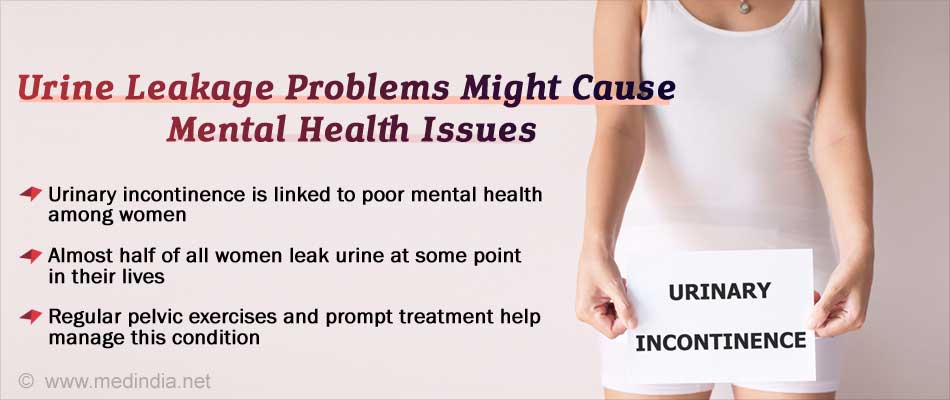Professor Christopher Chapple, EAU Secretary-General, from Sheffield Teaching Hospitals NHS Foundation Trust, UK, says:
is the unintentional leak of urine caused by the loss of bladder control.
According to the findings of the Fourth International Consultation on Incontinence, almost half of all women leak urine at some point in their lives. Older men develop this condition as a consequence of prostate problems.
It is essential to seek medical advice if urinary incontinence negatively impacts your life by predisposing you to certain infections or restricting social interactions.
Prevalence of Mental Health Problems among Women with Urinary Incontinence
Researchers from the University Hospital Centre of So Joo used the data of around 10,000 women aged 18 or above from a nationwide survey conducted by the Portuguese Health Ministry that records details about various health aspects of the respondents every five years. Other than the physical health conditions, the mental health details included in the survey were addictive behaviors, history of mental health issues, and previous psychiatric diagnosis and consultations underwent by the respondents.
After analyzing all these details, the team found that
- Around one in ten women suffer from urinary incontinence
- Four in ten women over 75 years of age experience loss of bladder control
- Women who had this condition were 66% more likely to report previously diagnosed depressive disorders than those who did not have this health condition
- They were also 65% more likely to experience difficulties while concentrating on any particular work and had a stronger sense of lower self-worth and guilt than their normal counterparts
“The high levels of depression and low self-worth in women who reported having incontinence are very concerning. Clinicians should be asking patients about their mental health when discussing treatments because treating their physical challenges could help with the psychological cost of the condition. Personally, I will be emphasizing this more with my patients and trying to understand better the mental burden of living with incontinence,” said Margarida Manso, a urologist and lead investigator of the study.
Ways to Manage Urinary Incontinence
References :
- Urinary incontinence – (https://www.mayoclinic.org/diseases-conditions/urinary-incontinence/symptoms-causes/syc-20352808)
- Definition & Facts for Bladder Control Problems (Urinary Incontinence)
– (https://www.niddk.nih.gov/health-information/urologic-diseases/bladder-control-problems/definition-facts) - Urinary Incontinence
– (https://www.urologyhealth.org/urology-a-z/u/urinary-incontinence)
Source: Medindia



